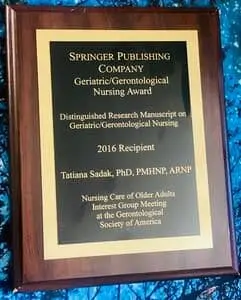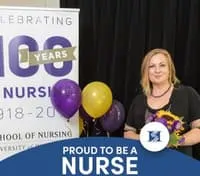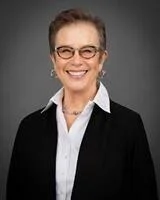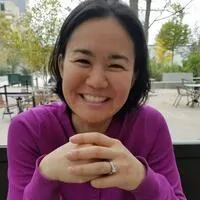
Managing Your Loved One's Health [MYLOH] ©
About
The MYLOH© was developed by the interdisciplinary team (nurse, social worker, doctor) to help family/friend care partners of people who are living with memory problems and their healthcare providers to identify what care partners need to know and to do to help manage their loved one’s health at home. Depending on how the person who is living with memory problems is doing, they may require help with some health management tasks, and care partners may need to take over some tasks completely. Care partners may have already mastered some of the caregiving challenges, but may need help with others. This survey will equip healthcare teams with the information necessary to help care partners develop required knowledge and skills and to offer support during caregiving journey. There are no right or wrong answers. Every answer contributes to developing a patient-care partner centers care plan.
Initial version of MYLOH was named Partnering for Better Health Living with Chronic Illness -Dementia [PBHLCI-D]. Instrument was renamed because during cultural tailoring, stakeholders informed researchers that the term " dementia" was stigmatizing. The new name - Managing Your Loved One's Health - was created in collaboration between researchers, health care providers and family/friend care partners.
Validity, Reliability, Cultural Tailoring
The MYLOH© is a valid, reliable and culturally tailored measure
In 2020, Drs. Kipfer and Pihet, in their manuscript "Reliability , validity and relevance of needs assessment instruments for informal dementia caregivers: a psychometric systematic review" concluded that compared to other instruments, MYLOH had the best psychometric evidence.
https://pubmed.ncbi.nlm.nih.go...
The MYLOH© development, validation, cultural tailoring and applications
are described in the following manuscripts:
- Measuring caregiver activation for health care: Validation of PBH-LCI:D. Tatiana Sadak, Anna Korpak, Soo Borson. Geriatr Nurs. Jul-Aug 2015;36(4):284-92. doi: 10.1016/j.gerinurse.2015.03.003. https://pubmed.ncbi.nlm.nih.go...
- Toward Assessment of Dementia Caregiver Activation for Health Care: An Integrative Review of Related Constructs and Measures. Tatiana Sadak, Anita Souza, Soo Borson. Gerontol Nurs. 2016 May 1;9(3):145-55. doi: 10.3928/19404921-20151019-02. https://pubmed.ncbi.nlm.nih.go...
- Measuring caregiver activation to identify coaching and support needs: Extending MYLOH to advanced chronic illness. Soo Borson, Patrick Mobley, Karl Fernstrom, Paige Bingham, Tatiana Sadak, Heather R Britt. PLoS One. 2018 Oct 11;13(10):e0205153. doi: 10.1371/journal.pone.0205153. eCollection 2018. https://pubmed.ncbi.nlm.nih.go...
ACCOLADES

MYLOH© development work received a SPRINGER PUBLISHING COMPANY Geriatric/Gerontological Nursing Award for a Distinguished Single research manuscript addressing Geriatric/Gerontological Nursing. This award is made to a gerontological nurse researcher for a single published work which in the opinion of the reviewers reflects outstanding scholarship with the use of a comprehensive methodology to study a particular gerontological nursing problem, the results of which have the potential to improve the care of older adults. The award was presented at the Nursing Care of Older Adults Interest Group Meeting at the Gerontological Society of America meeting in New Orleans on November 18th by Sheri Sussman Editorial at Springer Publishing Company.
J Appl Gerontol. 2016 Jul 5. pii: 0733464816657472. "Managing Your Loved One's Health: Development of a New Care Management Measure for Dementia Family Caregivers." Sadak T, Wright J, Borson S.
Permission to use MYLOH © and related checklists
Clinical Use
Universities/Foundations/Health Professionals/Hospitals/Clinics/Public Health Institutes:
MYLOH© and related checklists may be used, reproduced, and distributed WITHOUT permission. The test should be made available free of charge to patients.
Educational Use
Universities/Foundations/Health Professionals/Hospitals/Clinics/Public Health Institutes:
MYLOH© and related checklists may be used, reproduced, and distributed WITHOUT permission. The test should be made available free of charge to patients. Written permission and Licensing Agreement is required if funded by commercial entity or pharma.
Research Use
Universities/Foundations/Health Professionals/Hospitals/Clinics/Public Health Institutes:
MYLOH© and related checklists may be used, reproduced, and distributed WITH permission. The test should be made available free of charge to patients. Written permission and Licensing Agreement is required if funded by commercial entity or pharma. To request permission, please fill out the form below.
Commercial Entity/Pharma:
MYLOH© and related checklists may be used, reproduced, and distributed, WITH prior written permission and Licensing Agreement. The test should be made available free of charge to patients. To request permission, please fill out the form below.
Obtaining MYLOH © , related checklists and permission request
If you are NOT required to obtain permission, you can download MYLOH© here
We developed MYLOH©-based checklists to help facilitate conversations between health care providers, care partners and people who are living with memory problems.
You can download Managing Your Loved One's Health-Memory [MYLOH-M] © Care Partne r checklist here
You can download Managing Your Own Health-Memory [MYOH-M] © Patient checklist here
If you are required to obtain permission, p lease email the following information to Tatiana Sadak, [email protected] :
- Study Title
- Study objectives
- How will you use the MYLOH tool
- Source of Funding
- Name of PI
- Institution
- Country, region, state
- Your name, email address
MYLOH development team

Tatiana Sadak, Ph.D., PMHNP, RN, FAAN, FGSA, is an Associate Professor of Geriatric Mental Health Nursing, a Director of Graduate Education, and a Director of Dementia Palliative Education (DPEN) program at the University of Washington School of Nursing. She is a Ph.D. prepared, Certified Psychiatric Mental Health Nurse Practitioner specializing in Geriatric Psychiatry and Neurodegenerative Disorders. Her research and scholarship focus on informing health care delivery for patients living with dementia and their care partners by generating evidence, creating measurement tools, and developing interventions aimed to support clinicians and families working together to prevent avoidable health crises and enable care partners to manage the health of their care recipients without sacrificing their health and wellness. This work has been recognized with Tatiana’s selection as a fellow of the American Academy of Nursing and the Gerontological Society of America. Dr. Sadak received awards as a Distinguished Educator in Gerontological Nursing, a Top doctor/nurse practitioner in psychiatry, and was recognized for a distinguished single research manuscript addressing Geriatric/Gerontological Nursing.

Soo Borson MD is a geriatric psychiatrist specializing in dementia care research and systems transformation. The vision that drives her work is No-Crisis Care: an integrated framework for care of people living with dementia and their partners. Keys to No-Crisis Care are relationships that foster early detection of dementia; dyad-centered assessment, care planning, and care management; goal-setting partnership with clinicians; integration of clinical and community care; and long-term continuity of care. Dr. Borson is creator or co-developer of several dementia care tools: the Mini-Cog, widely used for detection of dementia in primary care and other non-specialist settings; Caregiver Stress Thermometer, a graphic single-item stress measure; BEHAV5+, a brief neurobehavioral rating scale to identify key drivers of need for intervention; MYLOH (Managing Your Loved One's Health) and MYLOH checklists, to operationalize priority setting in complex care situations; and MYOW (Managing Your Own Wellness) for caregivers. Now Professor Emerita at the University of Washington, she previously led the memory disorders diagnosis and management program there and was a core investigator in the Alzheimer’s Disease Research Center. She currently co-leads the CDC BOLD Center on Early Detection of Dementia, and is Deputy Editor of the Journal of the American Geriatrics Society, past President of the American Association for Geriatric Psychiatry, and a Distinguished Fellow of the American Psychiatric Association and the Gerontological Society of America. Her work continues to be guided by the need for tools and strategies that translate specialized knowledge of dementia detection, diagnosis, and medical and family care into practical, clinically meaningful, and effective systems for care delivery. She consults widely with health care organizations working to become ‘dementia capable’ and collaborates with many academic and health system researchers on federally funded studies of dementia detection and care delivery.

Emily Ishado, MSW, LICSW is a clinical social worker who specializes in the field of dementia, caregiving, geriatrics, long-term care and provision of therapy to support adults throughout the aging or caregiving process. Her research and scholarship focuses on supporting caregivers of people living with dementia and she co-developed and implemented a pilot intervention aimed at assisting dementia care partners to improve their self-care practices. She has been a research coordinator and collaborator with Dr. Sadak since 2015 and has been involved in all aspects of her dementia care research, including development, design, implementation, analysis, and dissemination.
